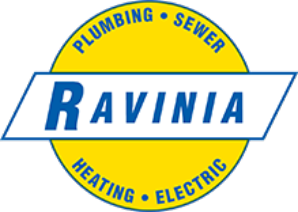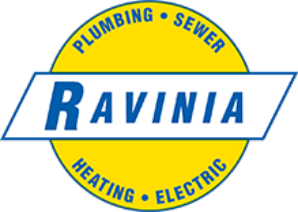
Regular gas or electric hot water heaters usually last between 10 and 15 years. If yours is reaching that time frame, it might be time to consider the different types of water heaters and what type you want next.
When the time comes to consider buying a new water heater, you need to understand the different types of water heaters and how they vary from one another. Understanding what makes them different will help you make the best decision possible for your family.
Read the latest blog post from Ravinia Plumbing, Sewer, Heating & Electric to learn more.
Conventional Storage Tank Water Heaters
A traditional tank water heater is the most common type of unit installed in homes, consisting of an insulated tank in which water is heated and stored. These heaters hold anywhere between 30 and 100 gallons. Inside the tank, a sensor reads the water temperature and brings the temperature up if it goes below a certain level.
In essence, you are paying to heat water even when you are not using it. Natural gas heaters generally use less energy and cost less to operate than electric heaters, but are more expensive and more difficult to install. The water should be drained and flushed twice a year to eliminate sediment and minerals from accumulating on the bottom of the tank.
Here are some of the key benefits of tank water heaters:
- Large capacity: Tank water heaters are available in different sizes, from 30 gallons to over 100 gallons, providing ample hot water for your needs. This is especially beneficial for larger households with multiple bathrooms.
- Convenience: Tank water heaters can be the most convenient option as hot water is always readily available. There is no need to wait for the water to heat up as it is already heated and stored in the tank.
- Affordable: Tank water heaters are generally more affordable than tankless, which require more sophisticated technology to produce on-demand hot water and can have higher installation costs.
- Energy efficient options: Although tank water heaters require a constant source of energy to keep the water hot, many newer models are designed to be energy efficient and can help reduce energy costs.
- Easy to install: Installing a tank water heater can generally be done quickly and easily without requiring major modifications to your home’s plumbing.
- Reliable: Tank water heaters have a proven track record of being reliable and effective in delivering hot water for decades.
Tankless Water Heaters
Tankless, or instantaneous, water heaters heat water on demand, so you are not paying to heat water when you are not using it. Since these units heat water on demand, they are more energy efficient than conventional units, but they cost more.
These heaters may also last longer than conventional units. Gas heaters are the best choice, as electric heaters might require an expensive upgrade of the home’s electrical capacity. A tankless water heater should be descaled of minerals at least once every two to three years.
Tankless water heaters offer a range of benefits that make them a popular choice over traditional storage tank water heaters. Here are some of the key benefits that you should know about:
- Energy efficient: Tankless water heaters only heat water as it is needed, eliminating the need for a large storage tank that constantly uses energy to keep the water heated. This can lead to significant savings on energy bills over time.
- Space saving: Tankless water heaters are typically smaller than traditional storage tank water heaters, making them a great option for homeowners with limited space in their homes.
- Endless supply of hot water: Traditional storage tank water heaters can run out of hot water, but tankless water heaters provide an endless supply of hot water on demand.
- Longer lifespan: Tankless water heaters typically have a longer lifespan than traditional storage tank water heaters, with some models lasting up to 20 years. This is because they don’t have a heavy storage tank that can corrode over time.
- Reduced risk of water damage: Traditional storage tank water heaters can leak and cause water damage, but tankless water heaters don’t have a storage tank that can rupture or leak., sending a large volume of water out into your home at once.
- Reduced environmental impact: Tankless water heaters use less energy than traditional storage tank water heaters, which makes them an environmentally friendly option for homeowners. This can help reduce your carbon footprint and contribute to a healthier planet.
Electric Heat Pump Water Heaters
A heat pump water heater captures heat from the air or ground and transfers it to the water in the tank. These water heaters are more expensive than electric heaters, but they use significantly less energy, and, over time, will be less costly. However, they don’t work well in very cold spaces, making them less desirable in colder climates.
The benefits of installing an electric heat pump water heater include:
- Energy efficiency: Electric heat pump water heaters produce hot water more efficiently as compared to conventional water heating systems, which lowers your energy costs.
- Fast recovery: Heat pump water heaters can quickly recover hot water, which means there will be no need for you to run out of hot water while taking long showers or during laundry sessions.
- Durability: A heat pump water heater has a longer lifespan than traditional gas or electric water heaters. They can last for 15 years or more on average..
- Tax credits and rebates: Installing ENERGY STAR-labeled electric heat pump water heaters can allow you to claim a tax credit of 30% of your total project costs, up to $2,000. There may also be state or utility rebates available for installing this type of high-efficiency water heater.
- Space-saving: Heat pump water heaters are typically smaller in size and have a compact design that saves space. Whether you live in a small home or a large one, their size and design provide flexibility in terms of installation.
- Environmentally friendly: Using a heat pump water heater reduces carbon emissions and helps to preserve the environment. It is an excellent way to contribute to a sustainable future and lower your household’s carbon footprint.
- Cost-effective: Although heat pump water heaters may have a slightly higher upfront cost compared to traditional heating systems, they provide more significant savings through energy efficiency and longevity. Over time, they are cheaper to maintain and have an excellent return on investment.
Solar Water Heaters
A roof-mounted solar-powered water heater takes the sun’s heat and transfers it to a water tank that heats the water. These units provide ample savings during the warm summer months. Most models have a backup electric or gas model that kicks in during colder or cloudy days. These units are extremely expensive, even with federal and local rebates, but the prices are coming down.
Solar water heaters are an eco-friendly and cost-effective solution for meeting hot water needs. The following are notable benefits of investing in a solar water heater:
- Energy savings: Solar water heaters use the sun’s energy to heat water, reducing reliance on fossil fuels. This means over time, households can save huge amounts on energy bills.
- Tax credit: Installing a solar water heater could qualify you to receive a tax credit equal to 30% of your installation costs.
- Reduced carbon footprint: Installing a solar water heater can reduce your carbon footprint and greenhouse gas emissions by a significant rate, making your home or business greener.
- Increased property value: Homes and businesses equipped with renewable energy solutions like solar water heaters boast higher property values due to low running costs and energy-efficient features.
- Long-lasting: Solar water heaters are designed to last, with a typical lifespan of 20 years. This makes them reliable and cost-effective solutions for hot water needs.
- Suitable for all climates: Contrary to popular belief, solar water heaters can work even in cold climates, as they are designed to absorb and utilize sunlight, not just heat.
Condensing Water Heaters
A condensing water heater is an option if you heat with gas and need a larger unit – one with a capacity of more than 55 gallons. These units operate similarly to a conventional water heater, but also capture hot exhaust gasses that would go out the flue and recycle them to help heat the water. Most tankless and some tank-type water heaters are condensing. Their increased energy efficiency will more than pay for their increased cost over their operational life.
Condensing water heaters are becoming increasingly popular due to their high level of efficiency and cost-saving benefits. Here are some of the main advantages they offer:
- Highly efficient: Condensing water heaters operate with high-efficiency levels, typically in the range of 90-98%, which makes them significantly more efficient than traditional water heaters. This means less energy is wasted, reducing your energy consumption and saving you money on your utility bills.
- Faster hot water delivery: Condensing water heaters are designed to provide hot water more quickly than traditional heaters due to their advanced technology.
- Durable and long-lasting: A high-quality condensing water heater is built to last for years, due to the use of reliable materials, advanced technology, and a well-constructed design.
- Higher energy savings: Over the long term, the energy savings of a condensing water heater can add up to significant amounts, making it a smart investment for homeowners who want to reduce their utility bills over time.
- Increased home value: Upgrading to a condensing water heater can increase the value of your home, especially if you plan to sell it in the future. This is because buyers are often willing to pay more for homes with high-efficiency appliances.
Contact Ravinia Plumbing for Water Heater Services
No matter the type of water heater that you currently have, or the type that you want to install in your home, Ravinia Plumbing, Sewer, Heating & Electric can help. Our team of plumbing professionals knows how important water heaters are to the comfort and safety of your home, so we’ll provide you with the necessary services to ensure that your water heater is working properly and without any issues.
Contact us today to receive more information about the different types of water heaters available for installation or to schedule an appointment with our team in Chicago’s North Shore and Chicago’s Northwest suburbs.



